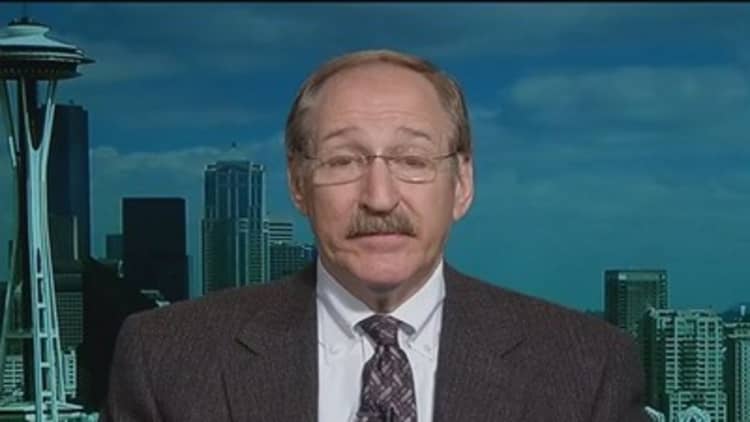
Ever wonder how people without bank accounts can manage their money sensibly?
Wonder no more. The so called unbanked often rely on a simple tool recommended to keep any consumer from overspending: cash.
Some 9.6 million American households, or about 25 million Americans, were unbanked in 2013, according to new data from the FDIC. And a TD Bank study found 71 percent of the unbanked use cash for daily purchases, compared with 30 percent of the overall population. That simple approach automatically limits how much a consumer can spend to what they actually have on hand.
Read MoreFor many US households, bank account is a luxury
"Some people like to manage their money with cash," said Ryan Bailey, head of retail deposit products at TD Bank. People who can get credit cards often use them because of the points they can earn, he said, but "people who feel they can't pay off their balances... self-select into that cash product."
The less positive news is the unbanked are also more likely than the overall population to use check cashing services and pawn brokers, both of which can be expensive ways to obtain cash.
Read MoreCan mobile phones help the world's unbanked?
The unbanked are also big users of prepaid cards, perhaps because without a bank account, they are a relatively safe place to stow savings. TD Bank found that 23 percent of the unbanked use reloadable cards, compared with 13 percent of the overall population. While prepaid cards can help you live within your means, they may also come with hefty fees and may offer fewer consumer protections than credit or debit cards, according to the Consumer Financial Protection Bureau.
The number of unbanked Americans has declined in the past year, the FDIC found, thanks to higher levels of employment and income. But some of the unbanked found fault with banks on several counts.
One third of the unbanked households in the FDIC survey said dislike or distrust of banks was a reason they had no checking or savings account, and 15 percent said that was the main reason. Some 31 percent of FDIC survey respondents said high or unpredictable fees were one reason they remain unbanked, and 13 percent said fees were the main reason.
Read MorePoor Americans find becoming 'banked' a daunting quest
Banks need to be very open about the fees they charge if they want to attract this population, Bailey said.
"Banks have to be transparent. People generally don't get mad about fees if you are clear about it," he said.


